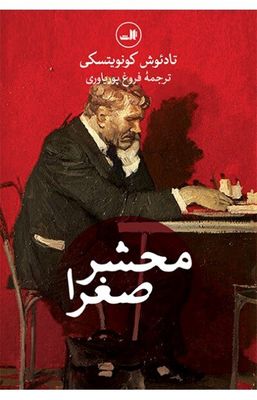The book has been translated into Persian by Forugh Puryavari.
As in his novel “The Polish Complex”, Konwicki’s “A Minor Apocalypse” stars a narrator and character named Konwicki, who has been asked to set himself on fire that evening in front of the Communist Party headquarters in Warsaw in an act of protest.
He accepts the commission, but without any clear idea of whether he will actually go through with the self-immolation. He spends the rest of the day wandering the streets of Warsaw, being tortured by the secret police, and falling in love. Both himself and Everyman, the character-author experiences the effects of ideologies and bureaucracies that have gone insane with, as always in history, the individual struggling for survival rather than offering himself upon the pyre of the greater good.
Brilliantly translated into English by Richard Lourie, “A Minor Apocalypse” is one of the most important novels to emerge from Poland in the last twenty-five years.
Konwicki is also a screenwriter and film director and is known for his bitter novels about the devastations of war and ideology.
He was educated at the universities of Cracow and Warsaw, and began writing for newspapers and periodicals. He served on the editorial boards of leading literary magazines and followed the official Communist Party line. His first work, “At the Construction Site” (Przy budowie, 1950) won the State Prize for Literature.
He began a career as a filmmaker and scriptwriter in 1956. His film “The Last Day of Summer” (Ostatni dzien lata) won the Venice Film Festival Grand Prix in 1958.
By the late 1960s, he had quit the Communist Party, lost his job in the official film industry and become active in the opposition movement.
Source: Tehran Times

